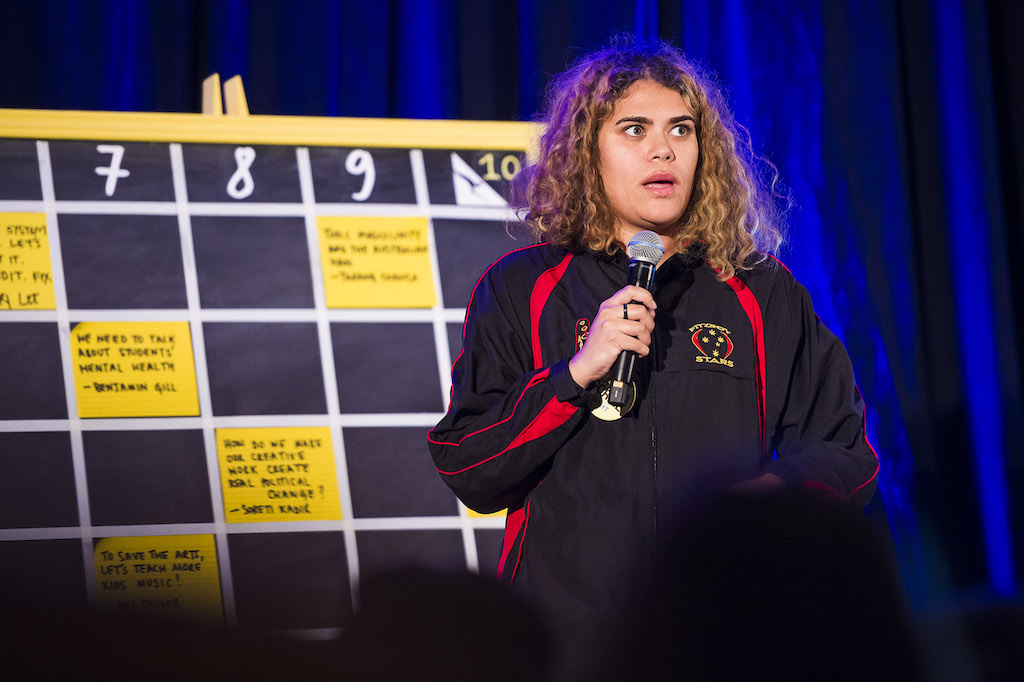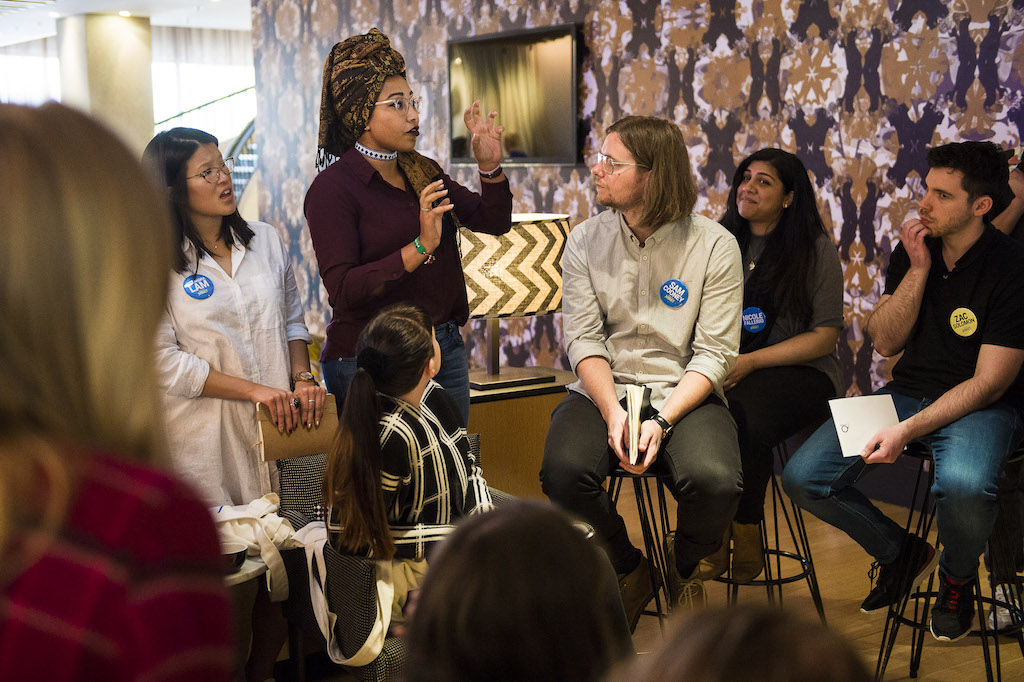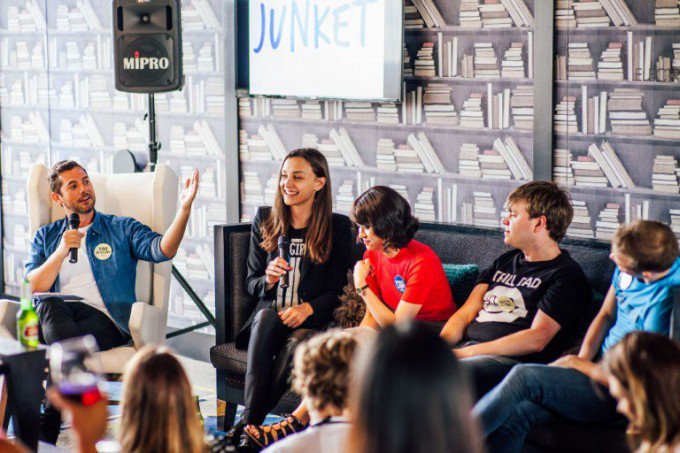Some Of The Many, Many, Many Things We Learned At Junket 2017
Everything you missed at our annual unconference.
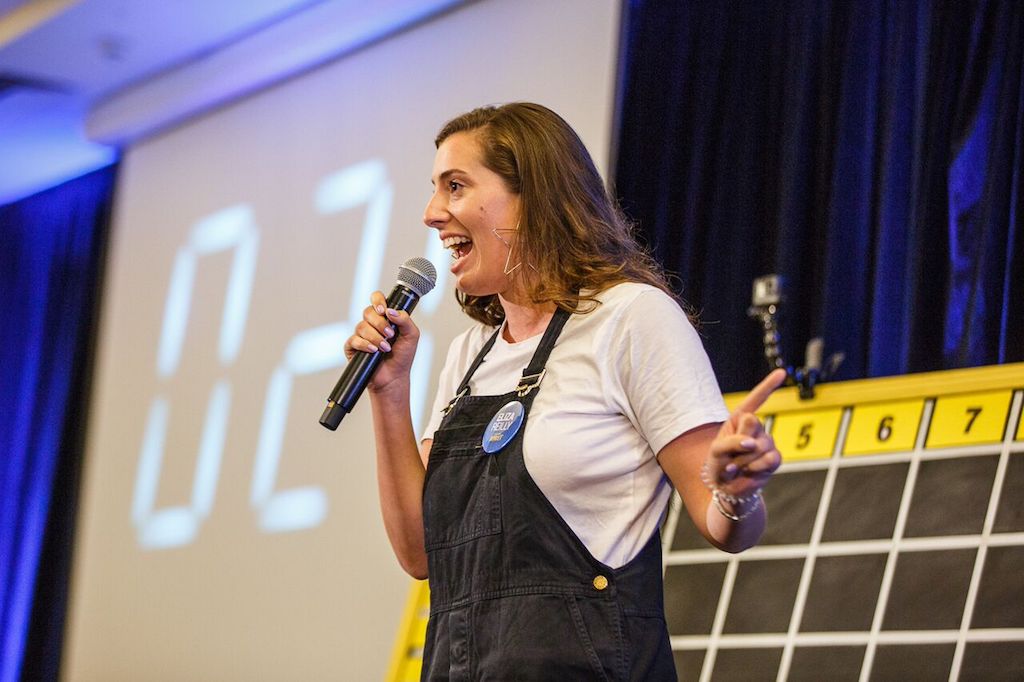
We’ve finished up Junket for another year, and our minds are sizzling, electric mush! This article is our attempt at piecing them back together and trying to chronicle everything we learned to use in the year ahead.
If you haven’t heard of it already, Junket is our annual unconference (a fancy word which means we basically make it all up on the day) that takes place out of Canberra. We invite 200 or so of the most exciting young people in the country to get together and talk about the biggest issues across politics, science, the arts, and much more.
This year former triple j breakfast host Alex Dyson proposed new alternatives to getting young people into politics, constitutional reform adviser Shireen Morris talked about pathways forwards for Indigenous people in the wake of belligerence from the federal government, and writers Liz-Duck Chong and Jess Knight got everyone talking about radical sex education.
But that’s just the start. Over the course of one very busy day we also mulled over fat acceptance, the global epidemic of sexual assault, solutions for a broken mental health system, toxic pop culture, and how to make museums cool again. For real.
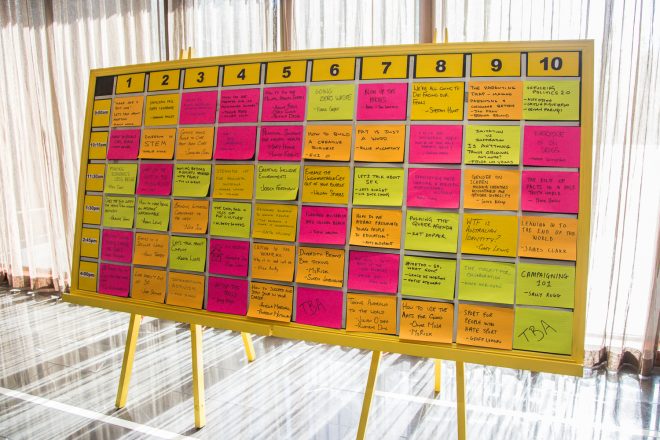
Our schedule for the (very, very busy) day.
Our whole editorial crew were on the ground, soaking it all in. Here’s (just a little bit of) what we learned:
We need to force ourselves to have difficult conversations
This was my first Junket and I was blown away by some of the incredible conversations I witnessed and was lucky enough to be a part of. It’s easy to be cynical about something like Junket, but it was genuinely rewarding to be in a room full of so many great people who just want to do good things.
By far the most rewarding conversations were also the most difficult ones. I really enjoyed Kaya Wilson’s panel on vulnerability. There were so many incredible people there talking about some of the most difficult things they’ve experienced, and some of the conversations were quite confronting. But it was also a great chance to chat about the ways we can deal with pressure, and how we can use our voices to try to create change while still maintaining a personal space for self care.
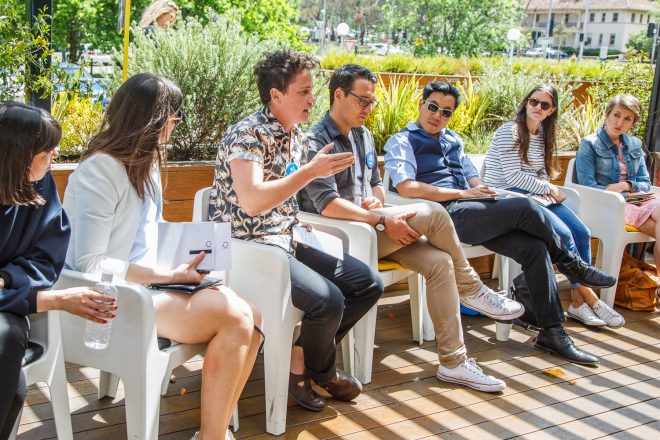
I also sat in on one panel about Indigenous recognition, where so many Indigenous Australians expressed frustration and anger at last week’s news that the government would abandon plans to enshrine an Indigenous voice in the constitution. So much of the discussion was about finding ways to get non-Indigenous Australians to engage with the issue in a more meaningful way, and it forced me to confront the fact that I could do more to try to promote the issue.
We’ve seen so much grassroots political activism around the marriage equality postal survey, how do we transfer that energy to Indigenous causes now that the survey is nearing its end? (Ed note: for more on that check out Miranda Tapsell and Nakkiah Lui’s podcast Pretty For An Aboriginal. They recorded a great episode from their hotel room at Junket).
Some Junket delegates expressed disappointment that the people who most needed to be part of important conversations didn’t make it to the relevant panels — one panel on #MeToo was attended by only a few men, and a panel on Australia’s white identity was attended mainly by people of colour. I think that’s a fair criticism, and it’s definitely something we’ll work on for next year.
We’ll only make advancements in these areas when people force themselves to take part in difficult conversations. Junket is a great place to bring together a diverse group of people to try to come up with solutions to some of the biggest problems facing society, but it will only happen when some of us truly leave our comfort zones.
— Rob Stott
We are having a crisis of mental health
I’m one of the few people lucky enough to have attended Junket every year since it kicked off in 2015. (I get a free pass as Junkee’s ed, I’m by no means the most deserving person at any of them). So, believe me when I say, this year had a huge point of difference: it was absolutely saturated by talks about mental health.
The exciting thing about Junket is that we never know what we’re going to get. People get up on the first night and pitch their ideas, their topics, their problems and their weird queries. It’s usually a pretty even mix — people pitch what they know. But this year, everyone was talking about problems with our mental health system, and steps we can take on a structural and personal level to help fix it.
People are working themselves to breaking point.
There were so many proposed talks on the subject we had to curate a special mental health stream for the day — from medical students and mental health campaigners talking policy and dollars, to writers and bakers and salespeople sharing stories of burnout and personal crises, to activists unveiling the health toll of their work. It’s overwhelming, and it’s devastating.
Though problems with our mental health system are crucial and ongoing, this feels like a real crisis. From Manus to #MeToo to global politics to the postal survey to the ongoing fight for Indigenous rights and representation, we’re surrounded by ongoing traumas. And that’s assuming you’re healthy or strong enough to expand your efforts to the political sphere — the personal can be just as exhausting. People are working themselves to breaking point; struggling with issues that aren’t getting the attention they need.
There are very few solid answers to problems this all-encompassing, but my major takeaway was that we need to look after each other a little more. Learn how to talk openly about these things, check in on your mates — even the impressive and ‘together’ ones. We’re all just muddling our way through things together.
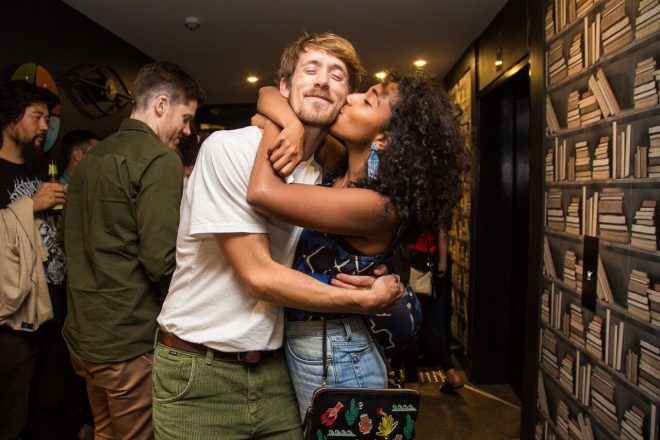
— Meg Watson
There’s so much power in active listening
Unlike the uni tutorials I sneak off to every Tuesday arvo, Junket featured some pretty active listening. At almost every session I went to, people were crammed in close together, off their phones, very visibly soaking up the insights their peers were offering. Some of them even had honest-to-god paper notebooks, which they were using to take notes. As I said, it was nothing like my university classes.
Flippancy aside, it was actually a pretty moving reminder of how powerful this kind of listening can be. Sure, maybe these people are paying the same careful attention on social media, but it’s invisible there.
In person, by contrast, it seemed to embolden people to share their thoughts, provide them with affirmation and support and community. People sharing stories of awkward sex, difficult negotiations of vulnerability, and bold political plans were met with the same affirmation: simply that their thoughts mattered and were heard. If nothing else, it’s a pretty powerful place to start.
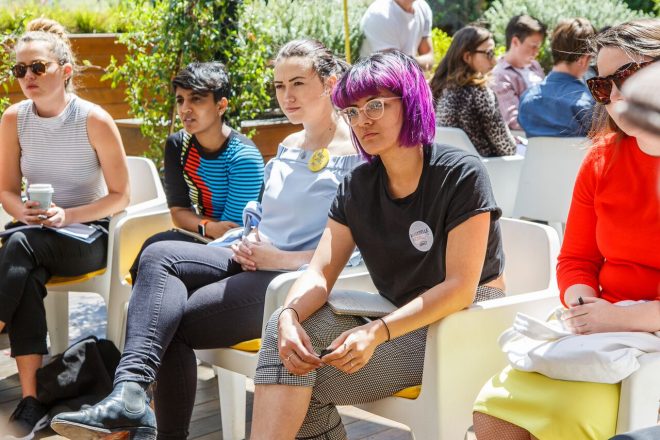
My only regret is that this kind of listening was distributed pretty unevenly between sessions at times. If you’re lucky enough to head to Junket in future, consider carefully the kind of value you can provide by simply showing up to hear people, and then consider which kind of sessions need that value most.
— Sam Langford
People like talking about sex, but we’re doing it all wrong
Most of the panels at Junket were intimate affairs — maybe 10 to 12 people sitting in a circle debating, asking questions and sharing ideas. But that wasn’t quite the case with the Let’s Talk About Sex session — moderated by the excellent Jess Knight and Liz Duck-Chong — in which at least 50 people crammed themselves in to a dimly lit corner of the QT Hotel bar. Turns out a lot of this year’s delegates were filthy perverts, which at the very least made me feel like I was in good company.
(Sidebar: “welcome to the sex dungeon” was the best quote of Junket, bar none).
Still, while plenty of people were keen to talk about sex, we were all fighting against an education program that is fundamentally broken. A quick show of hands revealed that while plenty of those in attendance had been conditioned during school sex ed to fear pregnancy and STIs, next to none of us had been taught about consent, or pleasure, or queer sex of any kind. That, to be quite honestly, is seriously fucked.
What followed was a frank, funny, inclusive, intimate, respectful and frequently eye-opening conversation about what exactly constitutes sex, and how we can better educate young people (and old people, for that matter) about a topic that can be awkward and uncomfortable despite the fact that we’re all totally obsessed with it.
— Tom Clift
All images: Yaya Stempler.
You can read more about Junket here.
